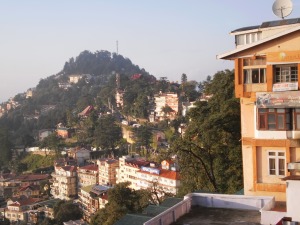Being an Indo-Canadian, I have visited India a number of times since I was born to see family but I’ve never stayed as long as 3 months, much less worked, in India. So spending a full 3 months away from Canada to work in India was definitely something I have never experienced before.
How did I land my internships? The short answer is family connections. In third-world countries where fair hiring practices aren’t a priority quite yet, connections are the main method of securing yourself an internship in India. I had two one-month long internships in New Delhi: one at Reliance ADA Mutual Funds as an Economic Market Researcher, and one at an Indian tourism company as a Sales Staff Assistant.
I was really lucky to have been assigned my first internship. As an Economic Market Researcher, it was my job to research all of India’s 33 provinces and summarize various economic and political data – such as major industries, and population demographics. Even though I have visited India before, I never researched it as thoroughly as I did that month – and what I found out was really fascinating! Each province is almost like its own country, and they are as different from each other as the countries in the EU. Each province has different customs, cuisines, different clothes, and completely different languages. By the end of all my hours of research I understood the topics on the news and the motives behind political conflicts, but I still felt like I barely knew India at all!
From the international business culture perspective… I worked on this internship at home by myself because there just wasn’t any room for me in the office downtown. I answered to my project manager, a quiet lady from Eastern India who had studied in New York, so she understood Western cultural norms better than I understood Indian business etiquette. As a result, she and I would go for meetings over coffee and chat about our personal lives as I would with any Canadian co-worker.
My second internship taught me about Indian people. After studying India from a macroeconomic perspective, it was refreshing to be given this project. It was my responsibility to understand the typical Indian traveller that make up a tourism company’s clientele, and come up with ‘all-you-need-to-know’ reports on the major tourist destinations. The Indian traveller is almost the exact opposite of the western traveller. The Indian traveller needs to eat Indian food wherever they go (which led me to an anguished search of Indian restaurants in Italy…why would you go to Italy and not eat Italian food?!), need a tour guide, and prefer to travel in luxury. International travel isn’t as popular in India as it is in Canada because Indians are still used to travelling to different parts of India, so a lot of the clients would call in asking questions like “What’s in Switzerland?” and the Sales staff would answer “Ma’am, Switzerland is known for cheese, chocolate and mountains.” A lot of what I encountered with this internship would start me giggling, to the surprise of my serious coworkers.
As for the international business etiquette… Indians are more traditional than Canadians in general, so don’t be surprised if the coworkers seem judgmental. Some advice I was given was to be vague about your personal life so you can avoid being gossiped about. Another big difference between the Canadian and Indian workplace is the obvious hierarchy. Older coworkers, whether they have as much experience as you or not, are treated with more respect. The higher-level employees do not mingle with the lower-level employees, but are on respectful and formal terms.
 But what if you don’t have family connections?
But what if you don’t have family connections?
For people who don’t have strong family connections, I can suggest two ways to enter the Indian work force. First, you could start working for international companies with branches in India, and ask to be relocated. Giant multinationals that started in India include Tata Motors, Infosys and Ranbaxy, and being the upcoming economic powerhouse that India is, a lot of other companies are expanding into the country all the time.
Another way in is to get in touch with volunteer organizations in India, or just go to India and make contacts while you’re already there!
Quick Takeaways!
- Make sure you have good contacts in India to set you up with an internship, since job postings will get a flood of applicants most employers can’t bother to comb through
- Knowing Hindi is a very good idea, but most people in business can speak English
- Be clear on the organization’s hierarchy, and respect it. Work relationships in India are more formal than in Canada!
And most importantly…
- Get ready to learn a lot. Travellers have always said India is like sensory overload, so be prepared!
Culturally yours,
Shiv 🙂


